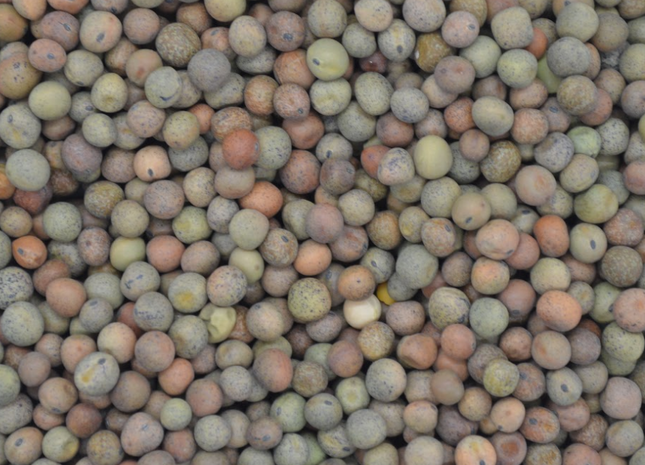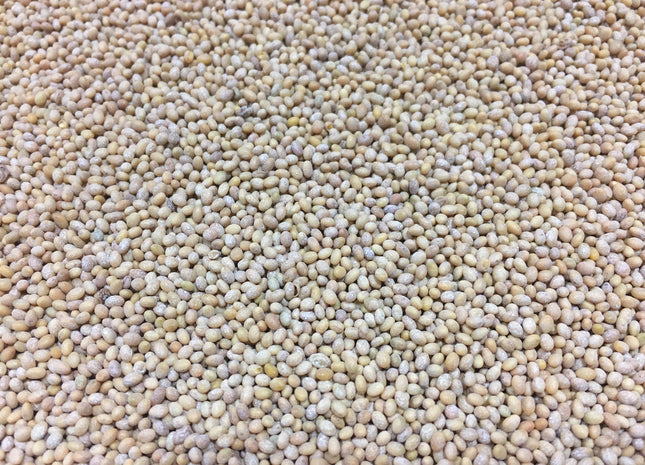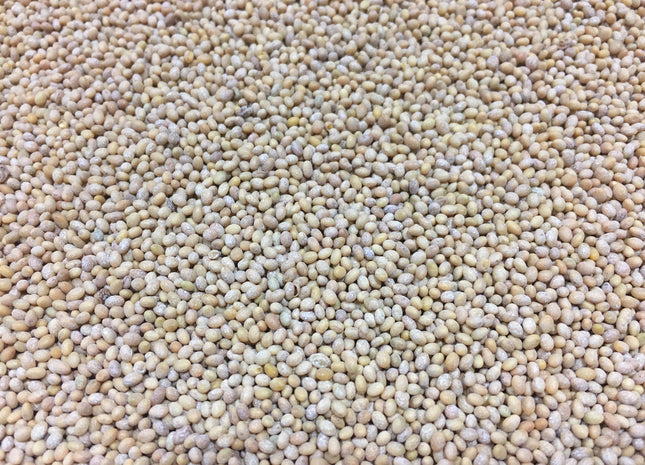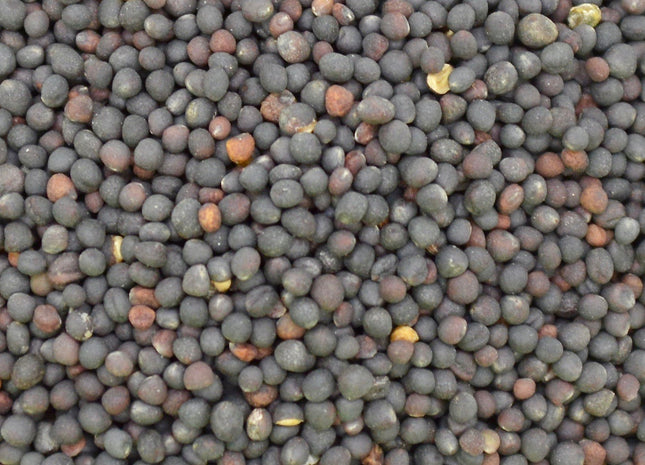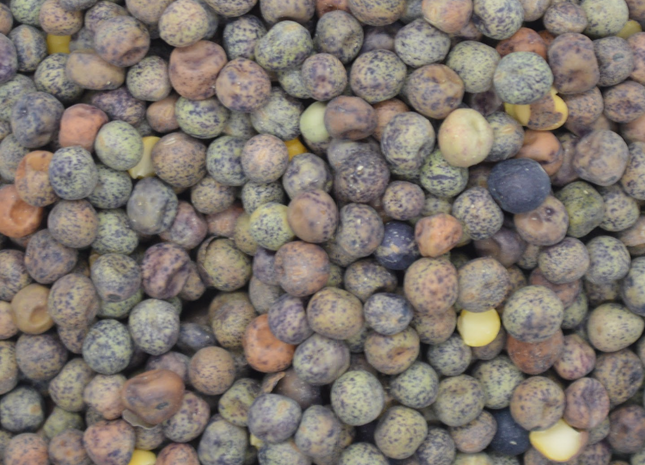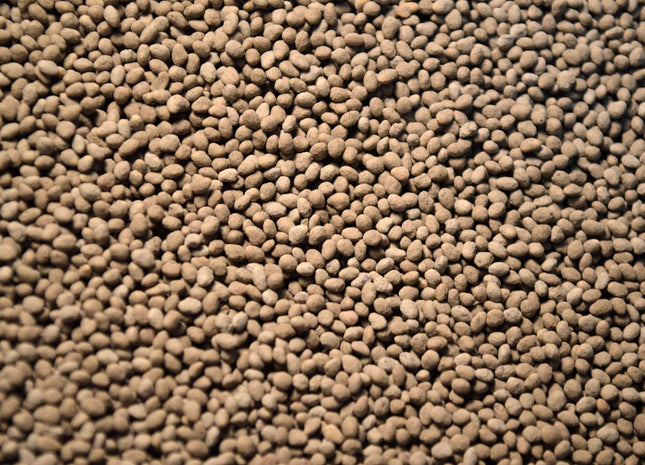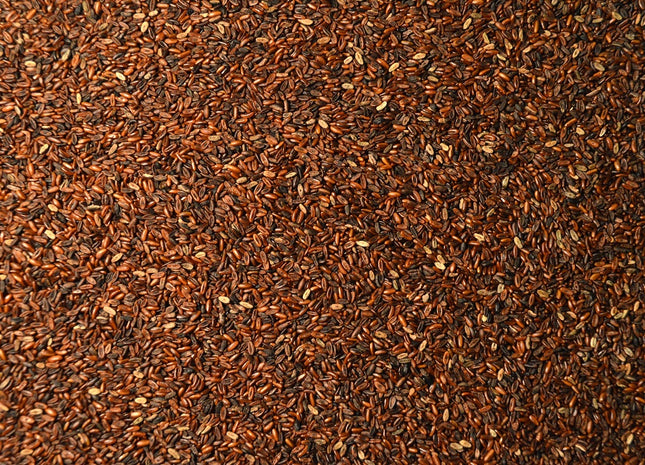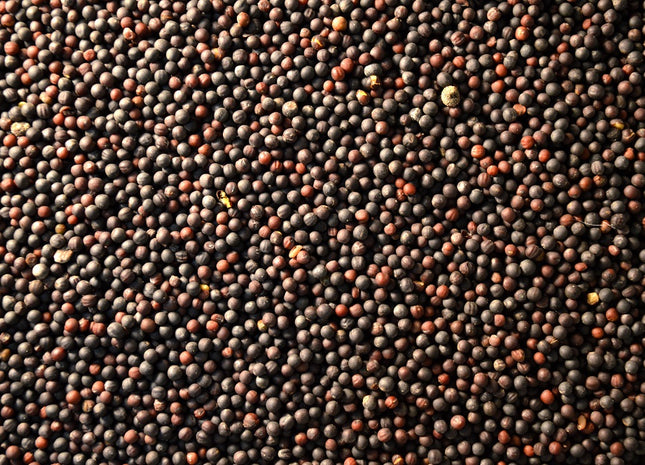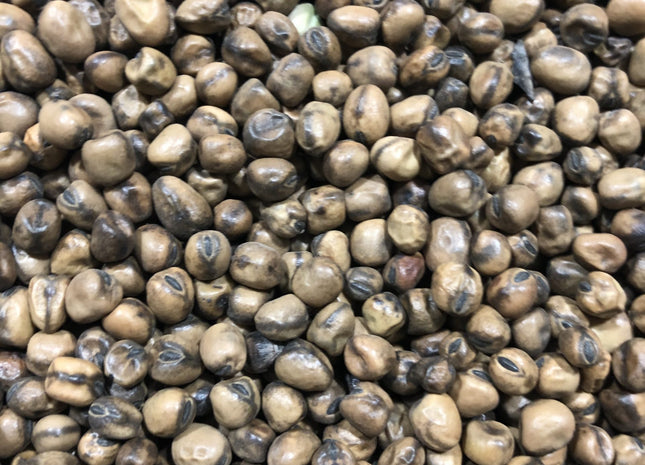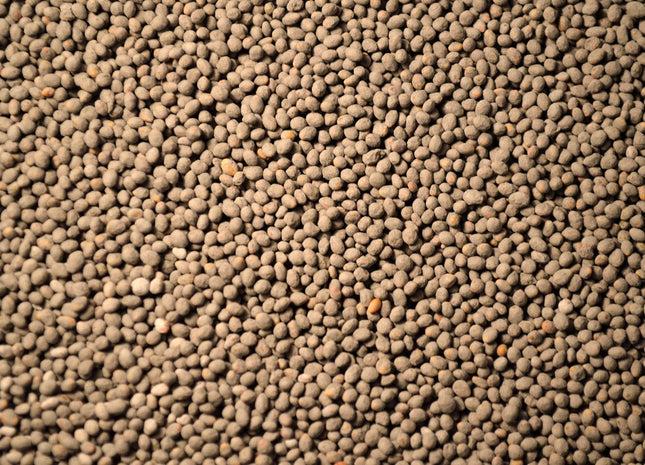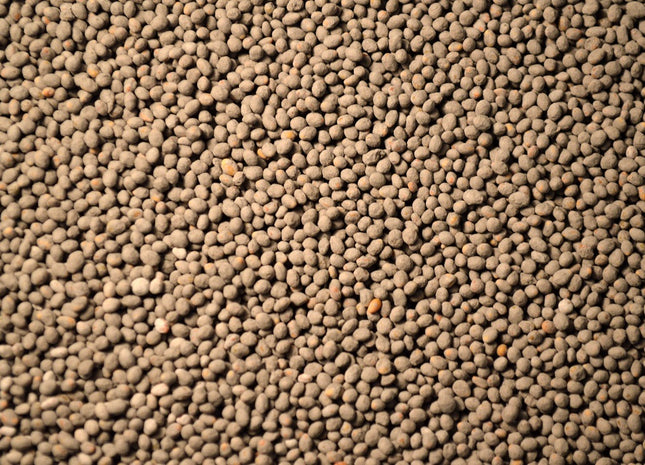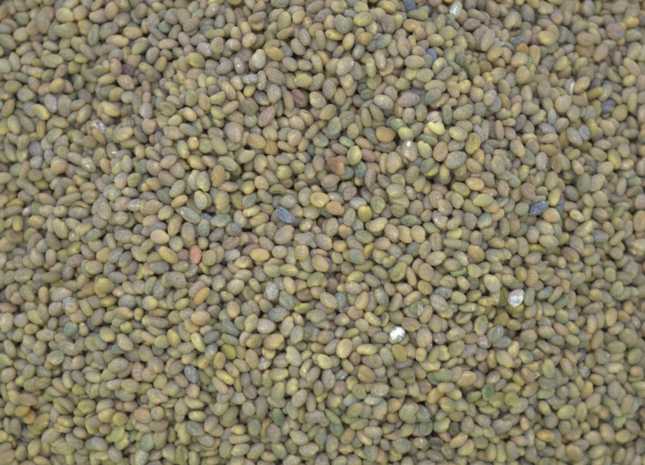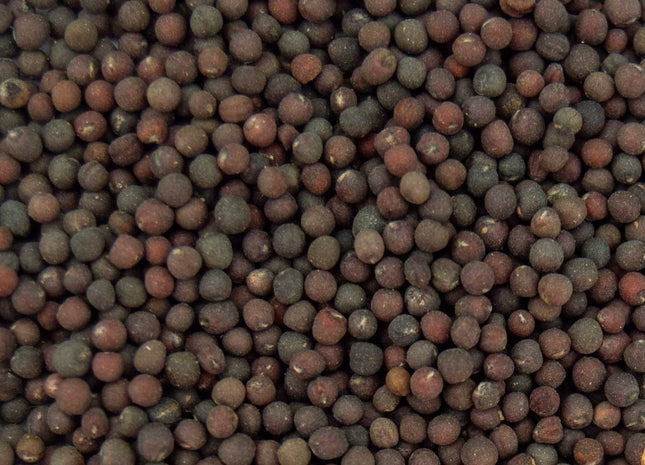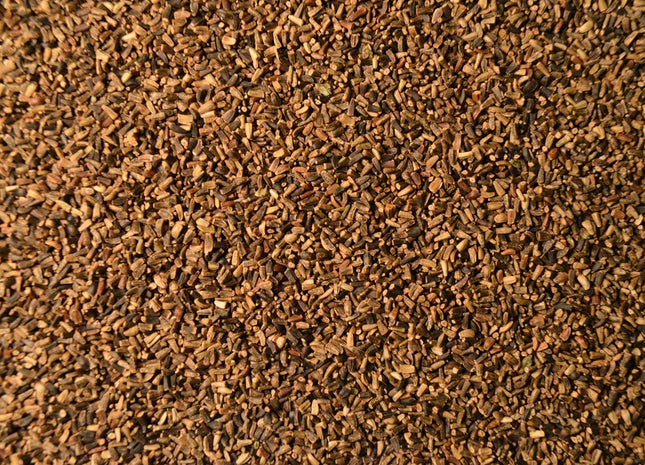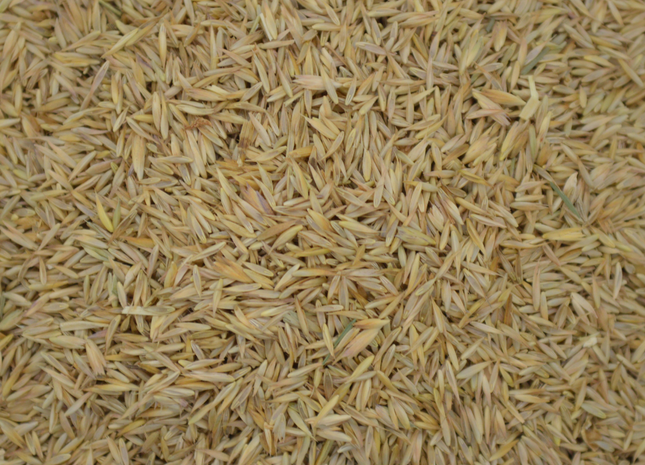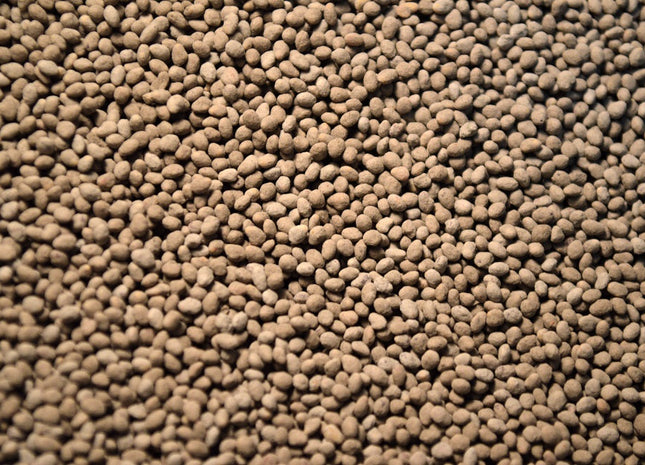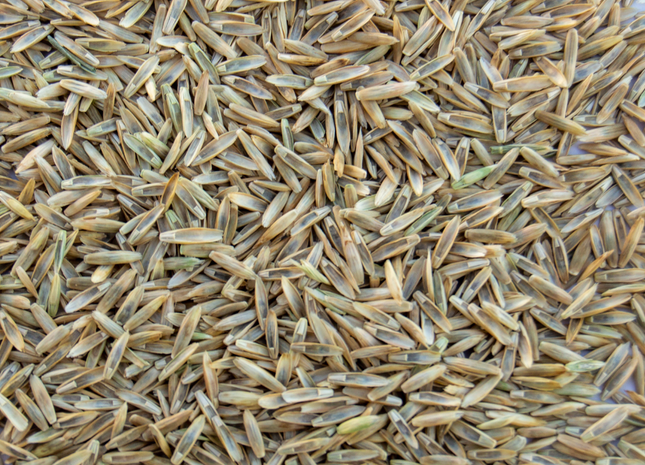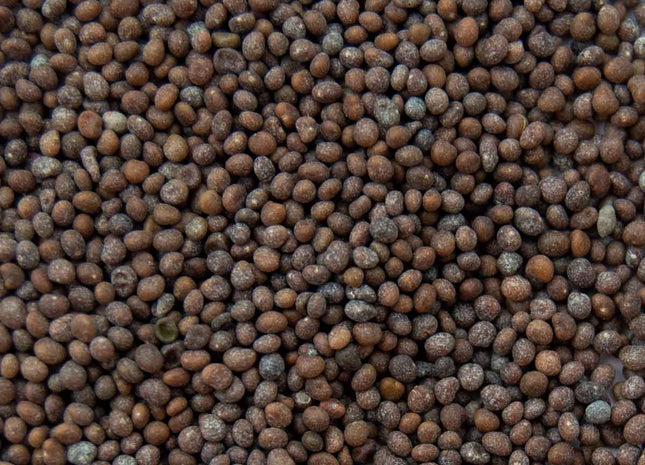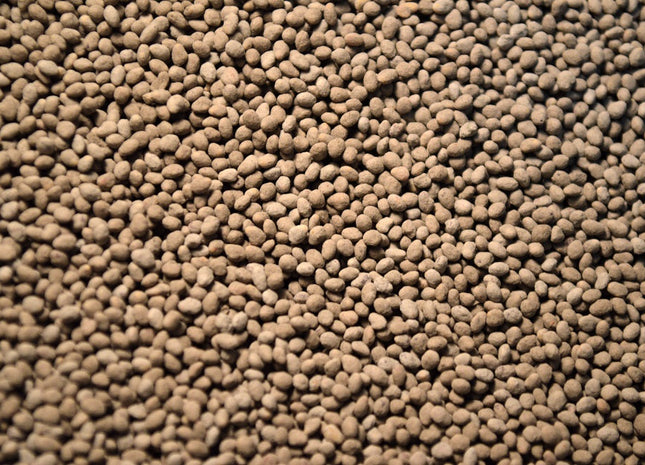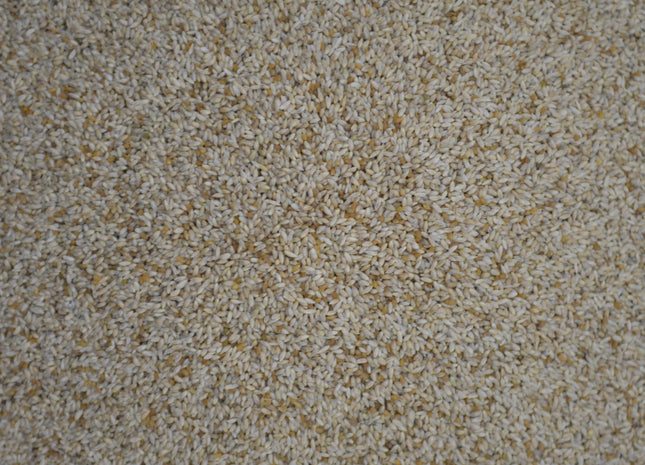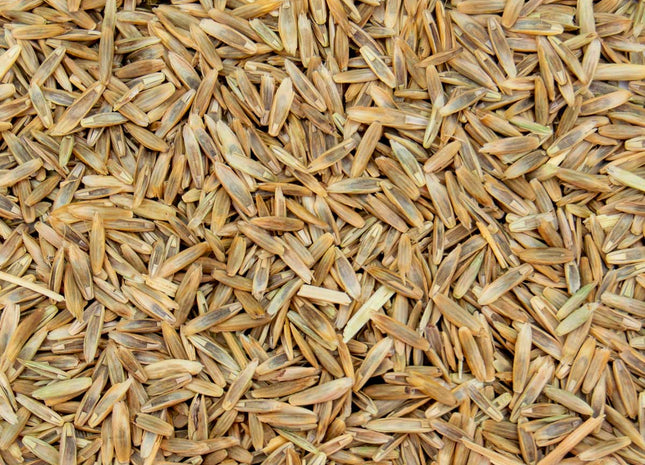Browse our extensive lineup of monoculture cover crop seeds.
Looking for a diverse cover crop mix? Browse Pre-Made Mixes or Food Plots.
Single Species Seed

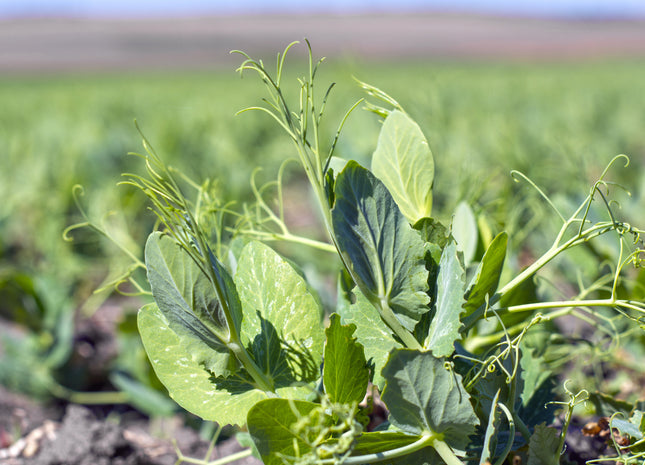
Winter Peas (Austrian)
Austrian winter peas are good companions to fall mixes, especially when combined with hairy vetch. If planted in early fall, there can be good growth for fall grazing as a protein source in the mix and they will grow much later into the fall than spring peas. In order to maximize winter survival chances, winter peas need to be planted relatively late (about the middle of wheat planting season) and deep, up to 3 inches. These conditions will help protect the growing point of the pea and assists in survival in colder climates.
from $0.80 per lb

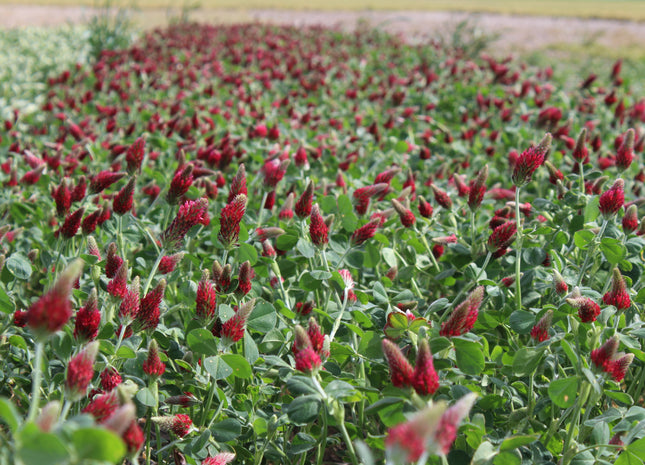
Crimson Clover (Dixie) - OMRI Inoculated
Crimson clover is one of the fastest growing, fastest establishing clovers. Known for its beautiful, deep red, cone shaped bloom, crimson clover is one of the most aesthetically pleasing cover crops and a popular choice for pollinator insects. For a more cold tolerant and higher biomass version, consider Kentucky Pride crimson clover.
from $1.26 per lb

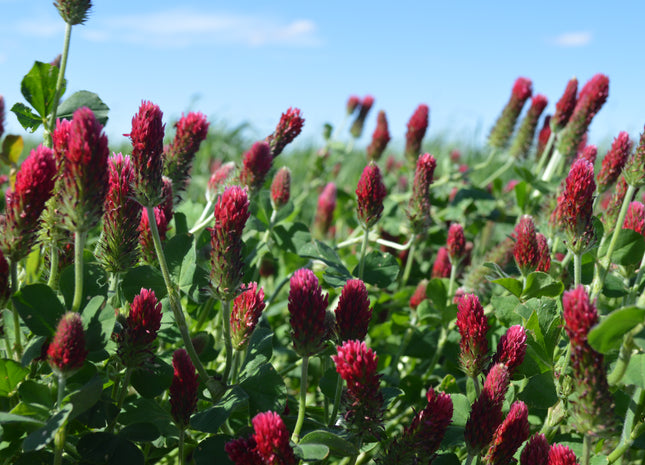
Crimson Clover (Kentucky Pride) - OMRI Inoculated
Kentucky Pride is an improved variety of crimson clover selected for more cold tolerance and more production (taller, deeper roots, more basal leaves and more tillering) than varieties like Dixie. Kentucky Pride crimson clover is a very fast establishing clover.
from $1.36 per lb

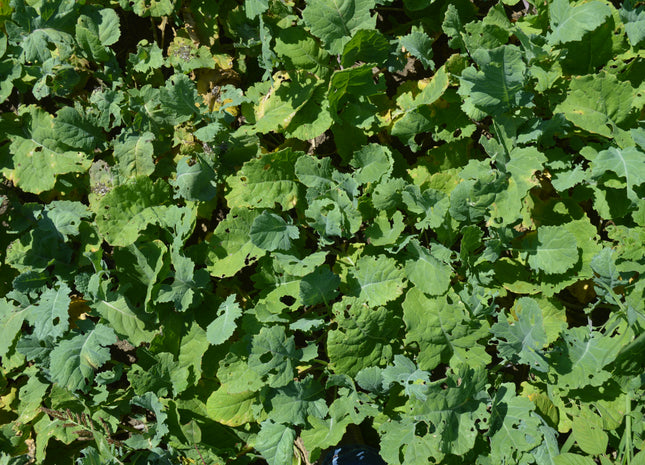
Rapeseed (Trophy)
Rape's rapid forage growth produces quality pasture equivalent to alfalfa, with a crude protein value around 16-17%. Boasted for its nutrient scavenging abilities, rape can accumulate potentially large amounts of residual N up to 120lbs N/A. Also, root exudates secreted by rape are known to aid in turning insoluble P into a more available form. Rapes seed cost is by far the cheapest of all the brassica species, generally less than $1/lb. Adding rape in between wheat crops has been shown to greatly reduce take-all in wheat. Rape has an excellent, deep penetrating tap-root with a dense fibourous root mass surrounding the tuber.
from $1.10 per lb

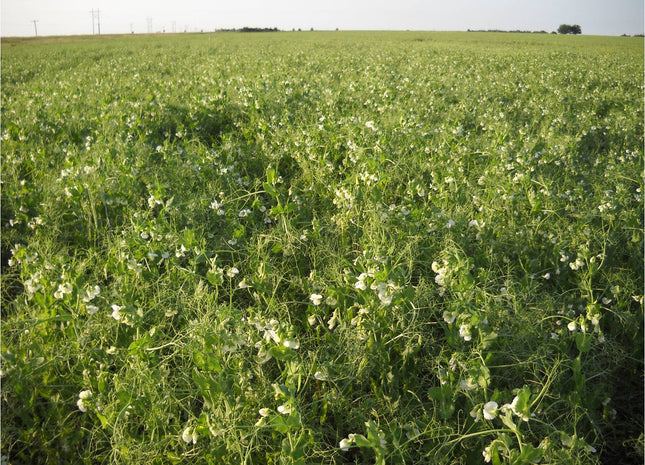
Spring Forage Pea (4010 Non-GMO)
Spring peas are one of the fastest growing spring legumes. Planted in spring after the harshest winter cold has passed, spring peas will tolerate some light freezing. Peas are commonly planted with oats as a high quality spring feed either for hay or grazing, or even a green manure.
from $0.55 per lb

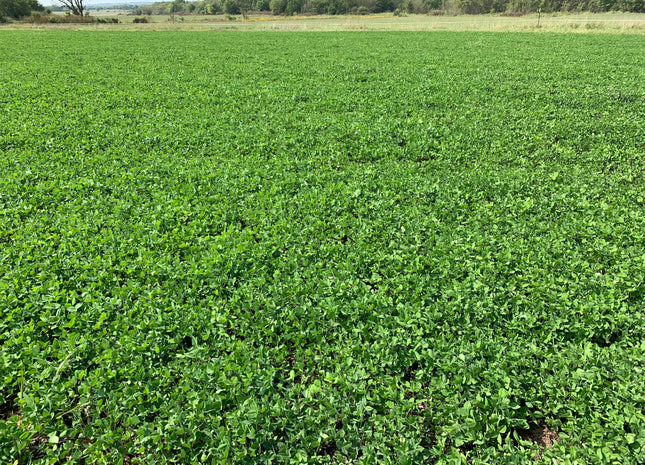
Red Clover (Medium) - OMRI Inoculated
With similar forage yields, crude protein and better digestibility when compared to alfalfa, red clover can be an excellent forage alternative to add to your operation. You can harvest your first cutting 60-70 days after a spring seeding and on every 30-35 day intervals after initial harvest. With its vigorous spring growth, this clover has the capability of suppressing weeds. Red clover is less invasive than white clover because of its shorter life span and the lack of rhizome or stolon rooting structures. It's deep taproot can extend up to 3ft into the soil profile and finer rooting structure in the top 5" can really aid in breaking up compacted soils. Red clover flowers are known to attract many pollinator and beneficial insect species. If P leaching is a concern, red clover has been observed to leach only 1/3-1/5 the amount of P as ryegrass or radishes.
from $3.00 per lb
- Out of Stock

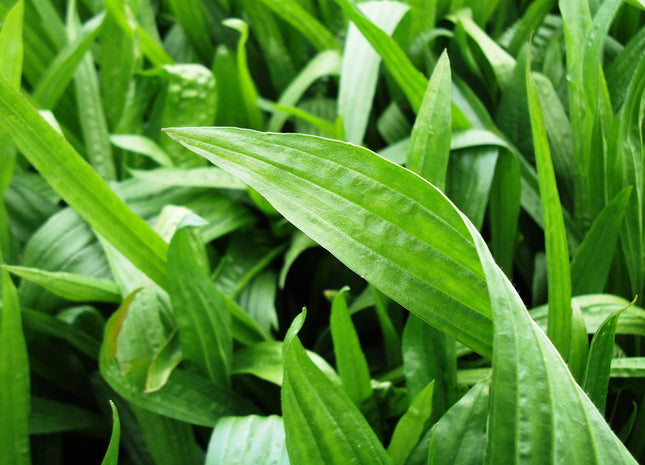
Plantain (Boston)
Plantain is a low-growing forb that, like chicory, is high in minerals. It also contains a natural antibiotic compound that helps reduce infections and also modifies rumen fermentation to improve animal performance, similar to an ionophore like Rumensin. It grows very well on compacted soils and helps loosen them.
from $5.00 per lb

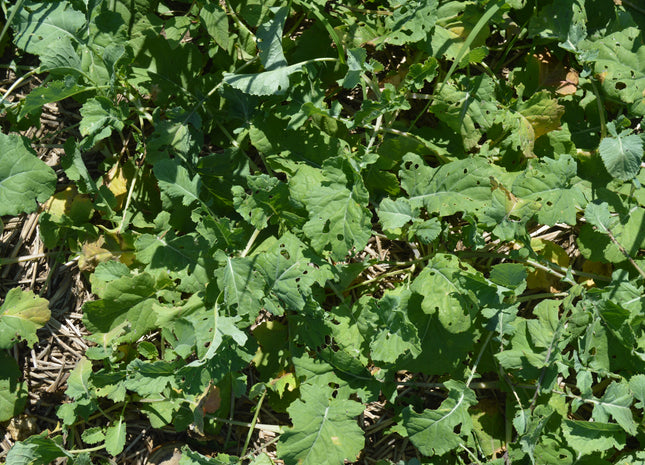
Kale (Bayou Kale-Rape Hybrid)
This hybrid plant is the product of blending two brassica parent plants: kale and forage rape. This innovative hybrid boasts a unique combination of qualities, harnessing the quick establishment capabilities of forage rape and the exceptional winter resilience of kale. The resulting kale-rape hybrid stands as a superior source of high-protein forage, tailor-made for winter grazing. Its accelerated growth, robust vigor, and resilience to harsh winter conditions make it an ideal choice for livestock feed.
from $3.00 per lb

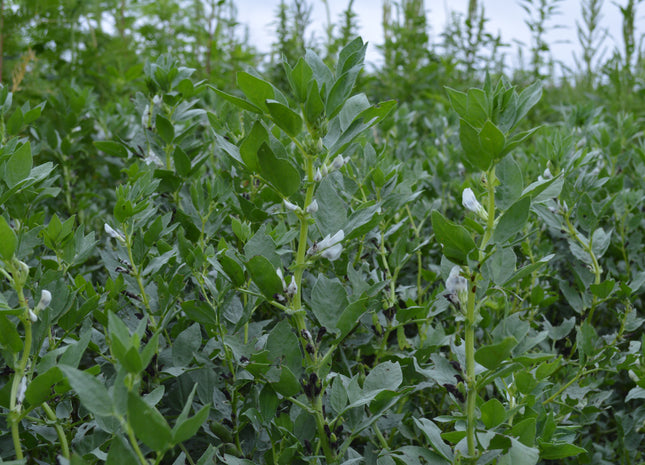
Faba Bean
Faba beans are one of the oldest plants under cultivation, having been grown in ancient Greece and Rome. Unlike other beans, they prefer cool weather, allowing them to be planted — and harvested — much earlier. Faba beans have a distinct flavor and creamy texture that make them a fine ingredient for a wide variety of dishes. This legume is a natural, organic fertilizer (called a green manure) that fixes nitrogen in the soil for other plants to use. By planting faba beans in your garden, food plot or field, you can improve soil fertility at the same time without needing to add other fertilizers and amendments.
from $0.85 per lb

Berseem Clover (Balady) - OMRI Inoculated
Berseem clover produces a non-bloating, high quality forage, that's more palatable than alfalfa. Berseem forage has been observed to maintain a CP content of 28-30% throughout harvesting regiments, which is slightly higher than crimson clover or alfalfa. Berseem clover has low water requirements and can provide strong biomass recovery after being mowed. A rapidly, consistent stand can be achieved because germination can occur in just 7 days and minimal hard seed counts. This clover produces flowers which are self-sterile so reseeding is not a concern. These flowers do provide a great pollen source, which is highly sought after by honeybees. Berseem can be controlled easily with glyphosate or when planted in colder regions will winterkill. With good shade tolerance, this species can be utilized for interseeding into crop systems or forage mixtures.
from $2.35 per lb

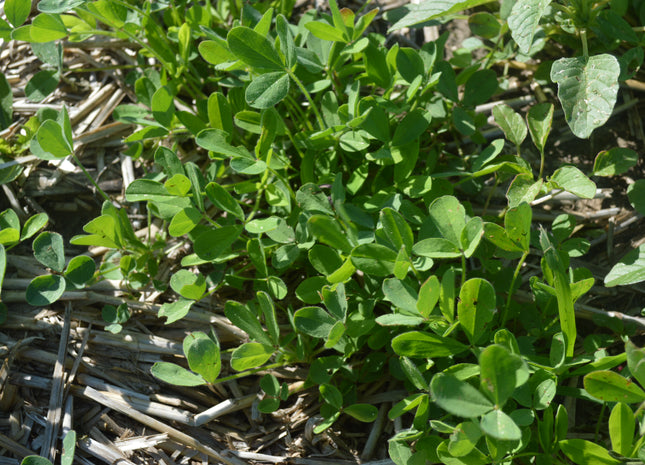
Berseem Clover (Frosty) - OMRI Inoculated
Berseem clover is a Mediterranean type that is salt tolerant, nitrogen fixing, and does well on light textured, sandy soils. Compared to other varieties of berseem clover, Frosty is later maturing, more cold tolerant, more productive, and has greater nutritional value. Frosty berseem clover can be overseeded into thinning stands of alfalfa as it looks very similar (before it blooms white) and it has excellent regrowth after cutting. For more information on Frosty berseem clover visit https://frostyclover.com.
from $3.85 per lb

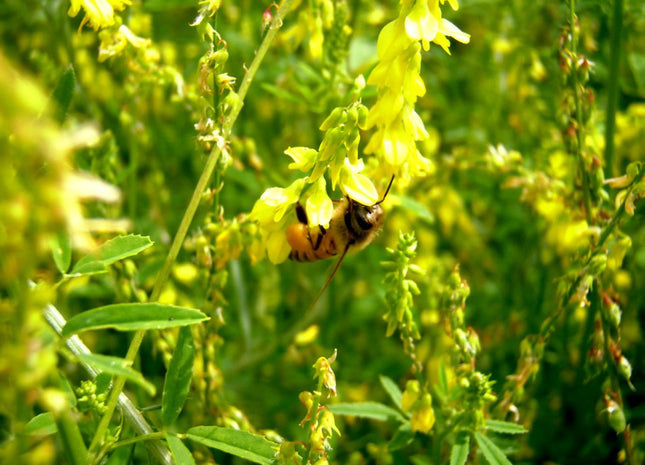
Sweet Clover (Yellow Blossom) - OMRI Inoculated
Yellow blossom sweet clover is not a true clover but is probably more closely related to alfalfa. Sweet clover leaves look much like alfalfa, but the margins of sweet clover leaflets are serrated around their entire edge whereas alfalfa is only serrated on the tip. It is typically a biennial, grows 2-6 feet high, and as the name implies, produces yellow flowers. When compared to the white flowering types of sweet clover yellow blossom blooms roughly 2 weeks earlier. It also matures earlier, usually grows less upright, possesses finer stems, and is less productive and less winter-hardy. However, yellow blossom sweet clover persists better in pastures and tolerate adverse conditions better than white varieties. In temperate climates with mild summers it can survive and thrive through a second year of production. Yellow blossom sweet clover adds lots of nitrogen and organic matter to a system.
from $3.75 per lb

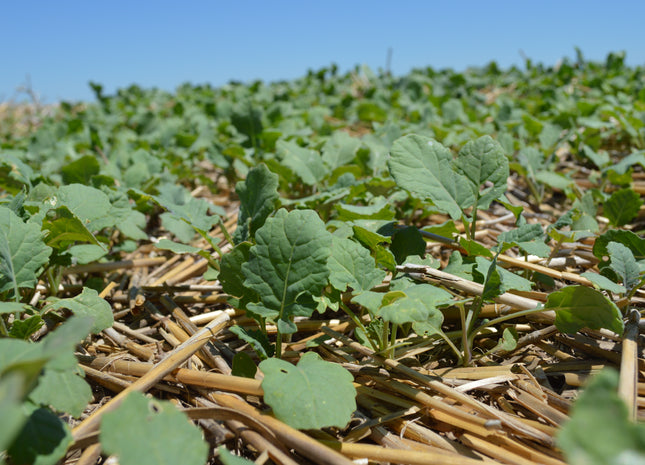
Siberian Kale
Siberian kale, like many other brassicas, are a great addition to a variety of mixes. The deep taproots allow the plant to access nutrients and water deep in the soil profile. The wide leaf and good palatability of kale works great in grazing mixes for livestock. A good cold tolerant brassica can last deep into the fall for good fall and early winter grazing.
from $2.50 per lb

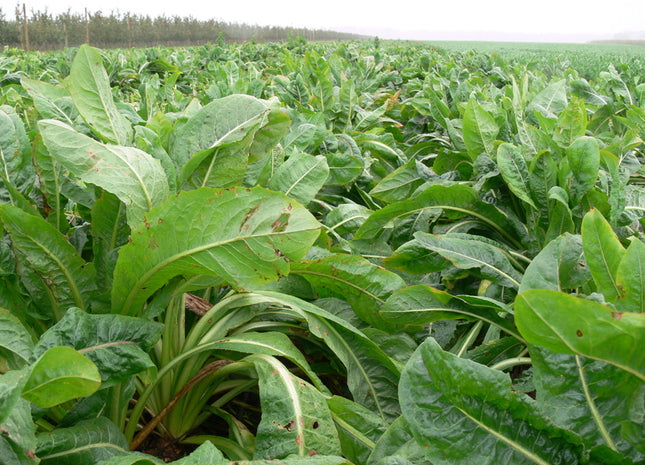
Chicory (Endure)
Chicory is a deep rooted forb that goes great in many perennial pasture mixes. Because of its ability to reach many minerals in the soil, this is a highly nutritious grazing plant especially before it blooms with blue flowers. Chicory has natural deworming abilities adding to its benefits in perennial grazing systems where it should be seeded at a low rate for cattle but can be increased for sheep or other small ruminants.
from $5.00 per lb

Orchard Grass (Devour)
Orchardgrass is a bunchgrass that regrows well through the summer and fall compared to most cool season grasses. New varieties such as Devour are much more drought tolerant and less susceptible to rust. As a result, these varieties can be used in the Central Plains with good success. Orchardgrass is commonly seen in the wetter climates of the Eastern US and is a favorite among horse owners.
from $17.48 per lb

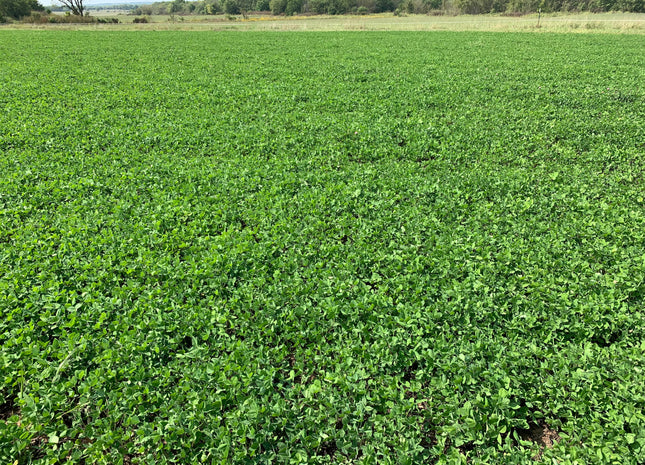
Red Clover (Blaze) - OMRI Inoculated
With similar forage yields, crude protein and better digestibility when compared to alfalfa, red clover can be an excellent forage alternative to add to your operation. You can harvest your first cutting 60-70 days after a spring seeding and on every 30-35 day intervals after initial harvest. With its vigorous spring growth, this clover has the capability of suppressing weeds. Red clover is less invasive than white clover because of its shorter life span and the lack of rhizome or stolon rooting structures. It's deep taproot can extend up to 3ft into the soil profile and finer rooting structure in the top 5" can really aid in breaking up compacted soils. Red clover flowers are known to attract many pollinator and beneficial insect species. If P leaching is a concern, red clover has been observed to leach only 1/3-1/5 the amount of P as ryegrass or radishes. Learn more about Blaze Red Clover here.
from $3.55 per lb

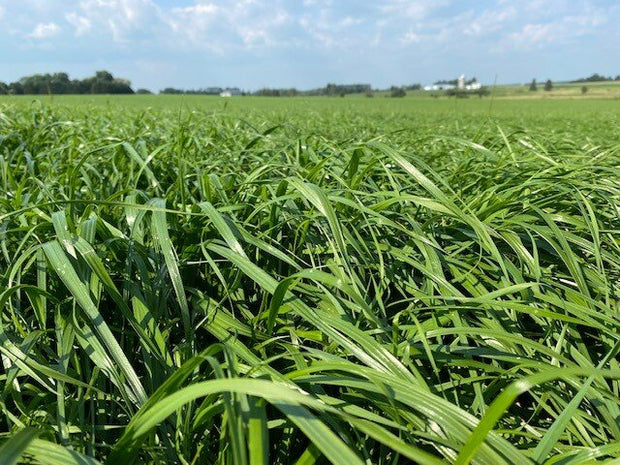
Perennial Ryegrass (Remington PLUS NE2 Endophyte)
Perennial Ryegrass is an extremely palatable cool season perennial forage source. While most perennial ryegrass lacks drought and heat tolerance, RemingtonPLUS, boasts improved ability to survive in hot and dry climates. The friendly endophyte associated with this ryegrass allows increased heat and drought tolerance. Perennial ryegrass is excellent quality forage and is a great option for grass finished livestock operations.
from $3.80 per lb

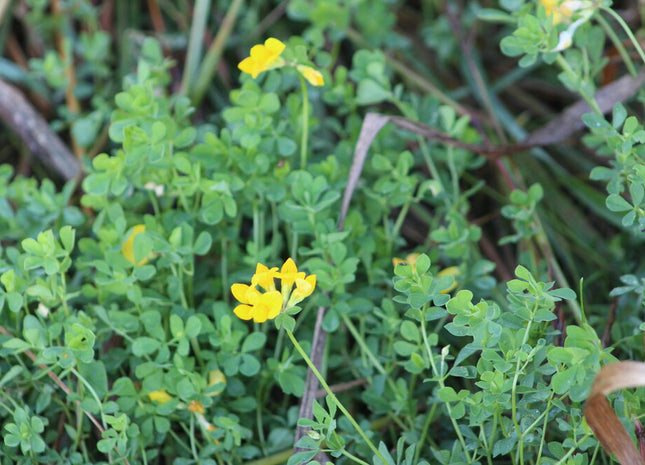
Birdsfoot Trefoil (VNS) - OMRI Inoculated
Birdsfoot Trefoil is a long lived perennial legume. This plant contains high levels of tannins, making it an excellent addition to pastures for grazing as there is no bloat risk that is common with other pasture legumes. The tannins also help neutralize the impact of grazing endophyte infected fescue. Birdsfoot Trefoil is not as productive when compared to alfalfa and is most commonly used in mixtures with other plants.
from $7.40 per lb

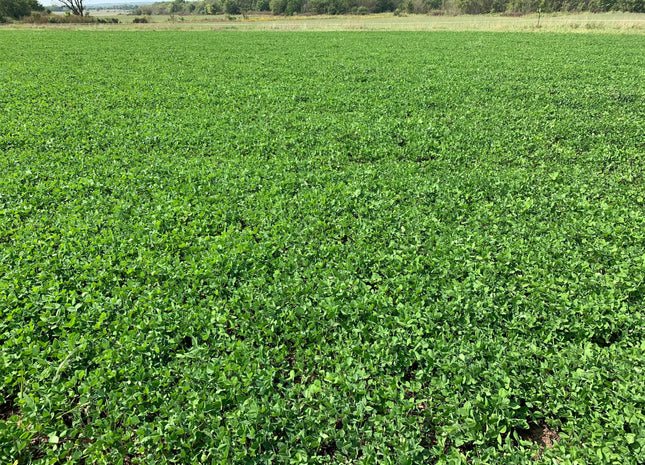
Red Clover (Q Medium) - OMRI Inoculated
With similar forage yields, crude protein and better digestibility when compared to alfalfa, red clover can be an excellent forage alternative to add to your operation. You can harvest your first cutting 60-70 days after a spring seeding and on every 30-35 day intervals after initial harvest. With its vigorous spring growth, this clover has the capability of suppressing weeds. Red clover is less invasive than white clover because of its shorter life span and the lack of rhizome or stolon rooting structures. It's deep taproot can extend up to 3ft into the soil profile and finer rooting structure in the top 5" can really aid in breaking up compacted soils. Red clover flowers are known to attract many pollinator and beneficial insect species. If P leaching is a concern, red clover has been observed to leach only 1/3-1/5 the amount of P as ryegrass or radishes.
from $3.55 per lb
- Out of Stock

Timothy Grass (Carson)
Timothy grass has excellent palatability while vegetative. It is an excellent species to use for hay, especially for horses. Though many varieties lack drought, heat, and grazing tolerance, Carson timothy is an improved variety and can be added to any cool season pasture.
from $3.20 per lb

Intermediate Ryegrass (TetraMag)
TetraMag intermediate ryegrass offers high forage tonnage with great feed value. This variety offers great tolerance. Use as a standalone grazing or haying forage, or utilize in addition with alfalfa or clover to offer a diverse feed for livestock. Planting can be done with a drill or broadcast as long as good seed to soil contact is achieved.
from $2.05 per lb
- Out of Stock


Organic Crimson Clover
Note: This product is certified organic. Crimson Clover is one of the fastest growing, fastest establishing clovers. Known for its beautiful, deep red, cone shaped bloom, crimson clover is one of the most aesthetically pleasing cover crops and a popular choice for pollinator insects.
from $3.10 per lb


Organic 4010 Spring Forage Pea
Note: This products is certified organic. Spring peas are one of the fastest growing spring legumes. Planted in spring after the harshest winter cold has passed, spring peas will tolerate some light freezing. Peas are commonly planted with oats as a high quality spring feed either for hay or grazing or even a green manure.
from $0.80 per lb
- Out of Stock


Organic Austrian Winter Peas
Note: This product is certified organic. Austrian winter peas are good companions to fall mixes, especially when combined with hairy vetch. If planted in early fall, there can be good growth for fall grazing as a protein source in the mix and they will grow much later into the fall than spring peas. In order to maximize winter survival chances, winter peas need to be planted relatively late (about the middle of wheat planting season) and deep, up to 3 inches. These conditions will help protect the growing point of the pea and assists in survival in colder climates.
from $1.00 per lb

